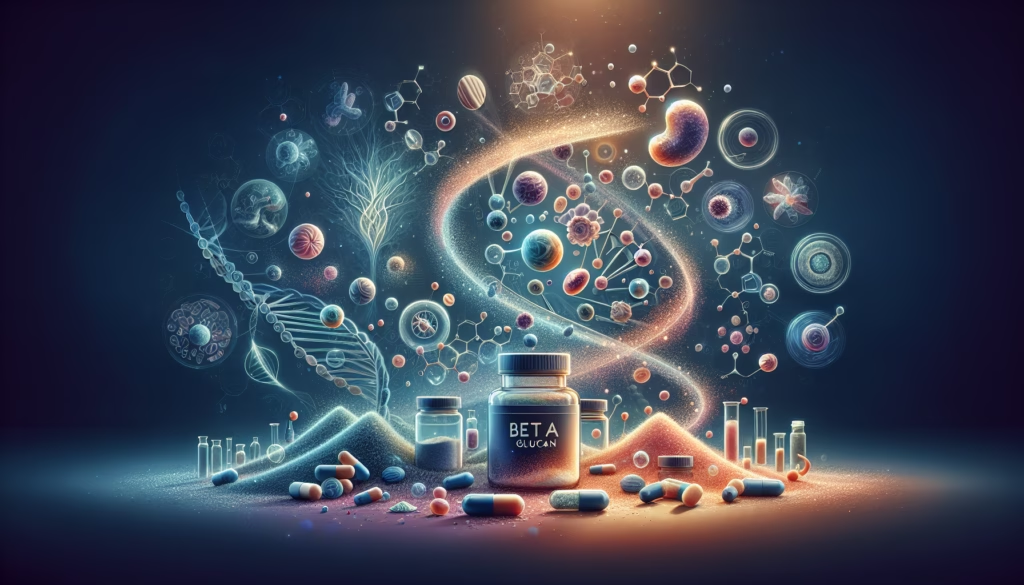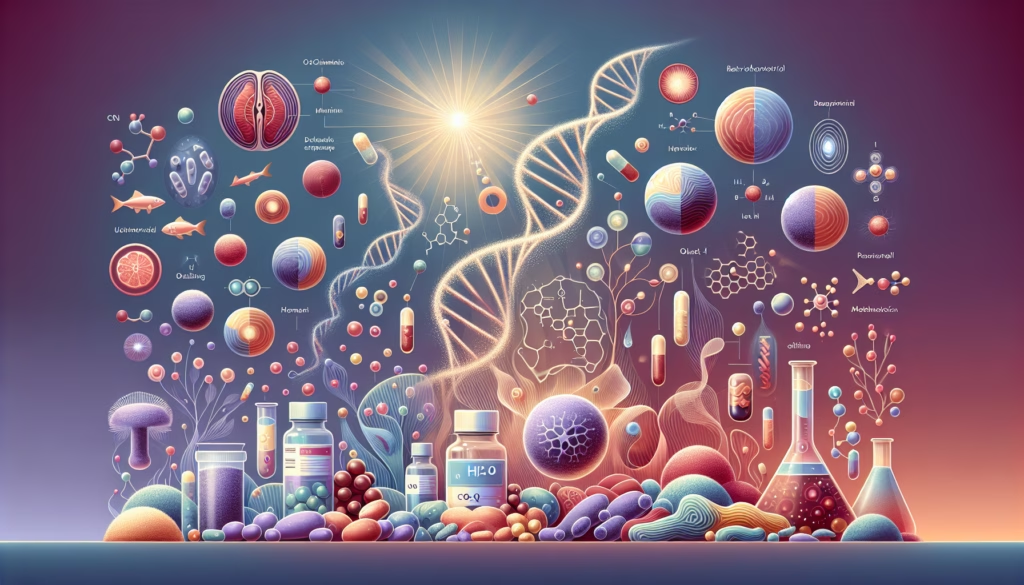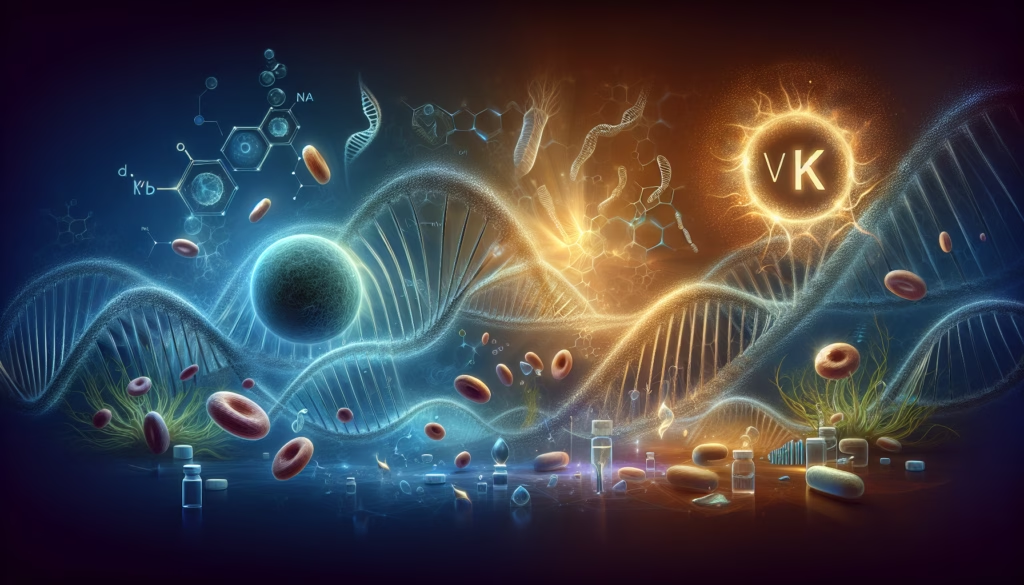
Beta Glucan
Discover the science-backed potential of beta glucan as an adjunct in cancer therapy. This post delves into the latest research
Click 
Resveratrol, a stilbenoid found in grapes and red wine, exhibits anti-cancer properties through various mechanisms. It directly interacts with metabolic pathways, demonstrating inhibitory effects on glycolysis, a process many cancer cells rely on for energy production. This metabolic modulation is central to the theory championed by researchers like Professor Thomas Seyfried, who posit that cancer is fundamentally a metabolic disease.
Research reveals Resveratrol’s ability to:
Inhibit cell proliferation: Studies show Resveratrol induces cell cycle arrest in various cancer cell lines, preventing uncontrolled growth. The exact mechanisms vary but often involve modulating cell cycle regulators like cyclins and cyclin-dependent kinases.
Induce apoptosis: Resveratrol has been observed to trigger programmed cell death (apoptosis) in cancer cells, acting on proteins like caspases and Bcl-2 family members.
Modulate signalling pathways: Resveratrol influences crucial signalling cascades within cells, including the NF-κB pathway, often dysregulated in cancer, leading to inflammation and tumour progression.
Inhibit angiogenesis: Some studies suggest Resveratrol may impede the formation of new blood vessels (angiogenesis) in tumours, effectively starving them of nutrients needed for growth.
It’s crucial to distinguish between in vitro and in vivo studies. While promising, many findings stem from cell culture experiments. Clinical data on Resveratrol’s efficacy in humans remains limited.
For general health benefits, typical resveratrol dosages range from 250 to 500 milligrams per day1. Some studies have used doses up to 1000 mg daily for up to 3 months, which are considered possibly safe4. However, individual needs may vary, and it’s important to consider factors like age, overall health, and specific health goals when determining the optimal dose1.
Research on resveratrol for cancer treatment has explored various dosages:
Colorectal Cancer: Studies have used doses of 0.5 g or 1.0 g daily for 8 days5.
Multiple Myeloma: A study used 5 g of a micronized formulation (SRT501) for 14 days5.
Breast Cancer: A 12-week study used doses that resulted in detectable levels in blood serum, with effects on breast cancer-associated genes3.
Animal Studies: Dosages have ranged from 1 mg/kg to 100 mg/kg body weight, depending on the type of cancer and study design2.
It’s important to note that while some studies have shown promising results, the therapeutic potential of resveratrol for cancer treatment in humans is still being investigated, and more clinical trials are needed to establish effective dosages35.
Doses up to 1500 mg daily for up to 3 months are considered possibly safe4.
Higher doses of 2000-3000 mg daily have been used safely for 2-6 months, but may cause stomach upset4.
Clinical trials have shown that doses up to 5 g per day can be technically safe, though doses above 2.5 g per day may increase the risk of side effects7.
Always consult with a healthcare professional before starting any new supplement regimen, especially when considering higher doses or using resveratrol for therapeutic purposes.
Breast Cancer, Colorectal Cancer, Leukemia, Liver Cancer, Lung Cancer, Lymphoma (Hodgkin and Non-Hodgkin), Multiple Myeloma, Ovarian Cancer, Pancreatic Cancer, Prostate Cancer, Skin Cancer (including Melanoma)
Resveratrol is generally well-tolerated in low doses.
However, some individuals may experience mild side effects such as:
Potential interactions with blood thinners and certain medications metabolised by the liver have been reported.
Cisplatin and Resveratrol:
This combination demonstrated synergistic effects against gastric cancer cells.
It increased β-galactosidase activity, ROS levels, and expression of p53, p38, p16, and p21 genes.
The combination induced G0/G1 cell cycle arrest and suppressed telomerase activity2.
Paclitaxel and Resveratrol:
Co-encapsulation in PEGylated liposomes showed potent cytotoxicity against drug-resistant MCF-7/Adr tumor cells.
This combination enhanced bioavailability and tumor retention of the drugs.
It effectively inhibited drug-resistant tumors in mice without increasing toxicity3.
Radiotherapy and Resveratrol:
Resveratrol shows promise as an adjunct treatment when combined with radiotherapy for cancer4.
Immunotherapy and Resveratrol:
Triacetylresveratrol, a resveratrol analog, has potential as an immunomodulator in combination with anti-PD-1 based immunotherapy for lung adenocarcinoma (LUAD)5.
These combinations leverage resveratrol’s ability to enhance the efficacy of other cancer treatments while potentially limiting toxicity and side effects. However, more research is needed to fully understand the optimal combinatorial strategies and their effectiveness across different cancer types.
US National Library of Medicine research on Resveratrol
Europe PMC research on Resveratrol
Pubmed research on Resveratrol
Diabetic Neuropathy: A double-blinded placebo-controlled trial assessed resveratrol’s impact on the quality of life of patients with diabetic neuropathy. The study used the RAND 36-item survey questionnaire to estimate quality of life improvements after 3 months of 500mg daily resveratrol supplementation3.
Menopausal Symptoms: A systematic review of studies on menopausal women found that resveratrol supplementation had several positive effects:
Improved cognitive function
Enhanced bone mineral density
Reduced perception of pain
Enhanced cerebrovascular function
Marginal improvements in mood states
Trend towards improved overall wellbeing and quality of life4
Cardiovascular Health: Resveratrol has shown potential in protecting against vascular aging, which could contribute to improved quality of life for those at risk of heart disease1.
Neurodegenerative Diseases: Studies have demonstrated resveratrol’s neuroprotective effects, potentially improving quality of life for those at risk of or experiencing neurodegenerative conditions1.
While these findings are promising, it’s important to note that some studies have shown inconsistent results. For example, while resveratrol delayed vascular aging in rats, it did not extend their lifespan1. Additionally, more research is needed to fully understand resveratrol’s impact on overall quality of life across different populations and health conditions.
We’ve done our best to include as much information as possible for this supplement.
If you have any other questions, please send us a message or join our Skool Group and ask our knowledgeable and friendly community.
Resveratrol is readily accessible in the UK, EU, USA, Australia, and NZ as a dietary supplement. It’s typically sold over-the-counter in health food stores, pharmacies, and online retailers. Regulatory frameworks differ; however, it’s generally classified as a food supplement rather than a medicine in most countries.
Based on the available clinical trial data, there are limited indications about which patient demographics may benefit most from resveratrol supplementation for cancer treatment. The research is still in its early stages, with few completed clinical trials specifically focused on cancer. However, some insights can be drawn:
Colorectal Cancer: Most clinical trials have focused on colorectal cancer, showing some potential benefits13.
Breast Cancer: One 12-week study showed promising results, with resveratrol affecting breast cancer-associated genes1.
Clinical trials have included participants ranging from 18 to 73 years old1.
The development of resistance to Resveratrol’s anti-cancer effects is a complex area requiring further investigation. Potential mechanisms might involve alterations in drug efflux pumps, increased expression of anti-apoptotic proteins, or activation of alternative signalling pathways that bypass Resveratrol’s inhibitory effects.
Pre-clinical studies on resveratrol have shown promising results in cancer prevention and treatment across various cancer types:
Skin Cancer:
Breast Cancer:
Colorectal Cancer:
Resveratrol exhibited multiple anti-cancer effects in pre-clinical studies:
Cell Cycle Regulation:
Signalling Pathways:
Gene Expression:
Apoptosis Induction:
For the latest list of active clinical trials, check here: ClinicalTrials.gov.
There is limited information specifically addressing genetic markers that might improve or inhibit the effectiveness of resveratrol in cancer treatment. However, some relevant insights can be drawn:
Smad4 Status: Research has shown that resveratrol’s anti-cancer effects in head and neck squamous cell carcinoma (HNSCC) are independent of Smad4 status. Resveratrol demonstrated anti-proliferative, DNA-damaging, and apoptotic effects in HNSCC cells regardless of whether Smad4 was deleted, mutated, or wild-type2.
P-glycoprotein (P-gp): In leukaemia cells, resveratrol has been shown to enhance the anti-proliferative effect of bestatin by suppressing P-gp function and decreasing P-gp expression levels. This suggests that P-gp expression might be a relevant genetic marker for resveratrol’s effectiveness in certain cancers1.
PI3K/AKT/mTOR Pathway: Resveratrol’s effects on various cancers, including leukaemia and gastrointestinal cancers, often involve modulation of the PI3K/AKT/mTOR pathway. Genetic variations in components of this pathway might influence resveratrol’s effectiveness1.
PTEN/AKT Pathway: In hepatocellular carcinoma and gastric cancer, resveratrol’s effects are mediated through the PTEN/AKT pathway. Genetic variations in PTEN or AKT might affect resveratrol’s efficacy1.
Connexin43: In colorectal cancer, resveratrol upregulates connexin43, which sensitizes cancer cells to cetuximab. Genetic variations in connexin43 might influence this effect1.
While these findings provide some insights into potential genetic markers, more research is needed to definitively identify genetic markers that significantly improve or inhibit resveratrol’s effectiveness in cancer treatment.

Discover the science-backed potential of beta glucan as an adjunct in cancer therapy. This post delves into the latest research

Explore the emerging world of hydrogen gas (H₂), also known as Brown Gas, and its remarkable potential as an adjunct

Explore the latest scientific insights into vitamin K2 and its promising role in cancer therapy. In this comprehensive blog post,
Apoptosis, or programmed cell death, is a natural process where cells self-destruct when they are damaged or no longer needed. This is crucial for maintaining healthy tissues and preventing diseases like cancer.
Drugs and supplements that induce apoptosis help eliminate cancerous cells by triggering this self-destruct mechanism, ensuring that harmful cells are removed without damaging surrounding healthy tissue.
Understanding and harnessing apoptosis is vital in the fight against cancer, as it targets the root cause of the disease at the cellular level.
Cell proliferation is the process by which cells grow and divide to produce more cells. While this is essential for growth and healing, uncontrolled cell proliferation can lead to cancer.
Drugs and supplements that inhibit cell proliferation help prevent the rapid multiplication of cancerous cells, slowing down or stopping the progression of the disease.
By targeting the mechanisms that drive cell division, these treatments play a vital role in controlling and potentially eradicating cancer.
Cancer cells often hijack specific biological pathways to grow and spread. Drugs and supplements that target these pathways can disrupt the cancer cell’s ability to survive and multiply.
By focusing on the unique mechanisms that cancer cells use, these treatments can be more effective and cause fewer side effects compared to traditional therapies.
Targeting specific pathways is a key strategy in precision medicine, offering a tailored approach to combat cancer at its core.
Angiogenesis is the process by which new blood vessels form, supplying nutrients and oxygen to tissues. Cancer cells exploit this process to fuel their growth and spread.
Drugs and supplements that inhibit angiogenesis can effectively starve cancer cells by blocking the formation of these new blood vessels.
By cutting off the supply lines that tumors rely on, angiogenesis inhibitors play a crucial role in controlling and potentially shrinking cancerous growths.
Immunotherapy harnesses the power of the body’s immune system to combat cancer. By boosting or restoring the immune system’s natural ability to detect and destroy cancer cells, immunotherapy offers a targeted and effective approach to treatment.
Drugs and supplements that support immunotherapy can enhance the immune response, making it more efficient at identifying and attacking cancer cells.
This innovative approach not only helps in treating cancer but also reduces the risk of recurrence, providing a powerful tool in the fight against this disease.
Inflammation is the body’s natural response to injury or infection, but chronic inflammation can contribute to the development and progression of cancer.
Drugs and supplements with anti-inflammatory properties help reduce inflammation, thereby lowering the risk of cancer and other chronic diseases.
By targeting the inflammatory processes, these treatments can help maintain a healthier cellular environment and prevent the conditions that allow cancer to thrive.